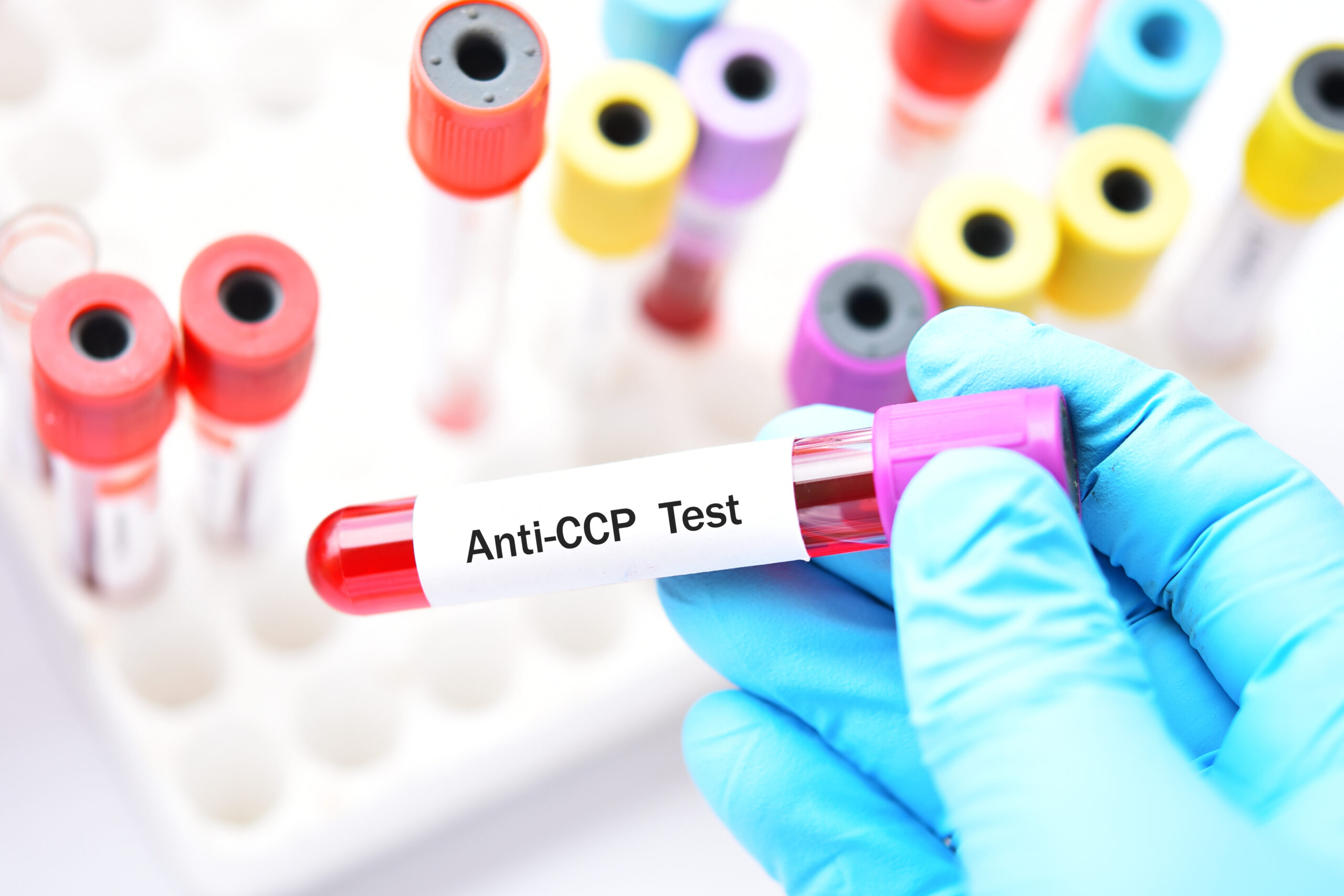Understanding the CCP antibody test is crucial for diagnosing rheumatoid arthritis (RA), a condition affecting joint health. This test provides valuable insights into the immune response that can lead to rheumatoid arthritis. Knowing about this early can be beneficial in effectively managing the disease.
Introduction to Rheumatoid Arthritis and Early Diagnosis
Rheumatoid arthritis is an autoimmune disorder. This means the immune system mistakenly attacks healthy joints, causing pain and swelling. The joints become stiff and can even lose their shape over time, which really affects how you move around.
Recognizing RA early is important. Why? Because it helps in starting treatment sooner, which can slow down the damage to the joints. When we catch it early, it gives doctors better chances to manage the symptoms and help keep your day-to-day life as normal as possible.
Doctors don’t just rely on symptoms to diagnose RA. They use various tests to catch it in its early stages. These tests tell doctors what’s going on inside the body, even before the symptoms get really bad.
This is where the CCP antibody test comes in. It’s a helpful tool that specialists use to figure out if someone might have RA.
Understanding CCP Antibodies
Cyclic citrullinated peptides, or CCPs, play a role in the immune system’s workings. Our bodies can mistakenly create antibodies against these peptides. These are known as CCP antibodies. When these antibodies show up, they can be a hint that RA might be developing.
CCP antibodies have a special link with RA. This test can pinpoint these antibodies long before the disease starts to attack the joints in a big way.
Here’s a quick look at the numbers: quite a few people with RA also end up having these antibodies. Around 70% to 80% of people with RA have CCP antibody test positive results. This connection makes it a key part of understanding and spotting RA early on.
The CCP antibody test helps tell doctors who’s more likely to have RA, even before major pain and stiffness occur. It acts like an early warning system, signaling the presence of something off in the body’s mechanics.
Demystifying the CCP Antibody Test
The CCP antibody test is a straightforward procedure involving a simple blood draw. It measures the levels of CCP antibodies in the blood. This provides essential clues about the likelihood of developing RA.
This test stands out because it detects RA sooner than some other methods, such as the RF (rheumatoid factor) test. The RF test looks for different antibodies, but it isn’t as spot-on as the CCP antibody test. Plus, the CCP antibody test can often pick up potential signs before symptoms fully develop.
Why is this early detection important? Well, catching RA before it starts to show big symptoms means treatments can kick in sooner, slowing down damage to the joints. This is vital for maintaining an active, healthy lifestyle and reducing pain.
CCP antibody test results pave the way for timely interventions, ensuring individuals don’t suffer severely before getting a proper diagnosis.
Crafting Personalized Treatment Plans with CCP Test Results
When CCP antibody test results are available, doctors can craft personalized RA treatment plans. Understanding an individual’s antibody profile helps tailor treatments effectively.
Here are some potential treatment strategies:
- Medication: Specific drugs can slow down immune responses and manage inflammation caused by RA.
- Therapies: Physical and occupational therapies play a role in maintaining mobility and joint function.
- Lifestyle Changes: Exercise routines and dietary plans to ease symptoms and improve joint health.
Some case studies show the impact of early detection. When RA is caught early using CCP antibody tests, treatments begin promptly, allowing more manageable control over symptoms and less joint damage.
These personalized plans based on CCP test results help individuals live better lives with RA, adapting interventions as needed based on ongoing test results.
Comparing the CCP Test With Other RA Diagnostic Tools
Several tests are available to diagnose RA, including X-rays, RF tests, and ultrasounds. These methods check joints for damage or inflammation.
However, these traditional tests have limits. X-rays and ultrasounds primarily show damage already done, rather than predicting it. RF tests can sometimes give false positives or negatives, causing misleading results.
In contrast, the CCP antibody test offers a more precise prediction. It detects RA before typical symptoms like pain or stiffness become prominent, making it a superior choice for early diagnosis.
Conclusion: Empowering Lives with Early Diagnosis
The CCP antibody test is a key tool in catching RA early. It works as an alert system, ensuring interventions can make a big difference in health outcomes.
Early detection with a CCP antibody test improves long-term results. It ensures appropriate treatments kick in before severe symptoms develop. This approach significantly enhances patient management strategies, focusing on preserving quality of life.
If you or someone you know is at risk, discussing the CCP antibody test with a healthcare provider can be a proactive step toward managing and understanding RA better.

